The world of brand building is undergoing an extraordinary disruption, propelled by the relentless march of technology. Just as it transitioned from radio to TV and witnessed the rise of eCommerce, the landscape is now being reshaped by the emergence of Generative Artificial Intelligence (AI). This transformative technology, still in its nascent stage, promises to disrupt the dynamics of brand building, revolutionizing consumer understanding, content creation, targeting, and brand safety. It also opens up a world of opportunities for startups to facilitate and accelerate this shift.
Opportunities in Brand Building: Unleashing the Power of AI
Harnessing the power of AI in brand building offers unparalleled opportunities for personalization, predictive analytics, enhanced customer service, brand identity development, and advanced market research.
- Personalization: AI empowers brands to deliver highly personalized experiences, boosting customer loyalty and satisfaction while optimizing marketing efforts.
- Predictive Analytics: AI assists in predicting future trends and consumer behavior, enabling informed marketing strategies and agile product development.
- Enhanced Customer Service: AI-powered chatbots and virtual assistants provide round-the-clock customer service, elevating the overall customer experience.
- Brand Identity Development: AI aids in developing a unique brand voice and identity, enhancing brand recognition and resonance.
- Advanced Market Research: AI analyzes real-time market data to identify trends and threats, maximizing the effectiveness of market research initiatives.
- Generative AI: a subset of artificial intelligence that involves the creation of new, original content such as images, texts or even music. Generative AI can be used to gather insights, brainstorm ideas and even create new concepts or prototypes.
Three Starting Points: Listening, Engaging, and Transforming
Listening
AI search tools, leveraged properly, are infinitely revealing of brand value and startup opportunity. AI-driven listening systems empower brands to gain insights into market trends, consumer feedback, and signals. Moreover, AI tools like ChatGPT facilitate virtual brainstorming and provide real-time feedback, enabling rapid prototyping and concept refinement.
These tools also offer detailed carbon footprint scores, allowing brands to assess their sustainability efforts more effectively. Cincinnati-based startup Native AI employs AI to derive unique qualitative insights for the CPG industry, helping brands optimize their e-commerce channels, monitor and improve brand health, and fuel R&D. NicheFire, meanwhile, provides state-of-the-art consumer and market insights that can provide brands with a clearer understanding of their position in the market and how to navigate through it.
Engaging
AI tools offer tremendous opportunities to engage consumers in conversation through various feedback mechanisms. Whether through focus groups, surveys, social media monitoring, or call center interactions, feedback loops have always played a crucial role in driving innovation. Chatbots, functioning as virtual call center agents with extensive knowledge similar to Wikipedia, can provide automated and engaging responses to nearly any consumer query. This level of automation can be effectively balanced with human interaction, especially when addressing complex issues that require live assistance, such as product defects or adverse impacts.
Most brands fall well short on delivering satisfactory feedback processes. Contact information is often hard to find, call-center interactions are prolonged and frustrating, and brand search engines frequently fail to provide answers to basic questions on topics like product ingredients or sustainability. Furthermore, brands face competition for credibility from AI tools such as ChatGPT and Google Bard, which can provide in-depth brand benefits information beyond what is available on their own websites. Rethinking engagement is critical:
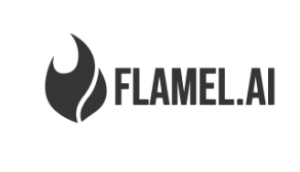
Flamel.ai’s AI-driven design studio simplifies content creation for brands, enabling them to generate marketing content across different social media platforms. This empowers brands to meet the demand for personalized and dynamic content in an AI-driven world.
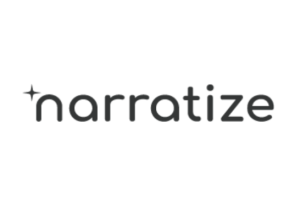
With the ability to transform complex scientific, technical, and medical insights into compelling content, Narratize aids brand conversations. By leveraging AI to distill intricate information into accessible and engaging content, brands in these sectors can effectively communicate their value to a broader audience.

Through its real-time social media segmentation system powered by AI, Spatial.AI offers brands an unparalleled opportunity to predict and influence consumer behavior. This enables brands like Olay and Kroger Zero Waste Advisor to forge stronger customer relationships by gaining a deeper understanding of their target audience and adjusting their strategies accordingly.
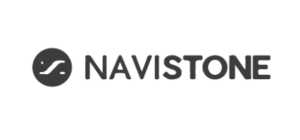
NaviStone’s allows brands to convert consumers throughout their buying journey using powerful digital intent signals, all while respecting consumer privacy. This becomes particularly relevant in the ongoing discourse surrounding data privacy and consent in AI-based marketing initiatives. Brands can communicate effectively and personally with their customers, thereby building trust.
Transforming
Disruption in the brand organization is driving the adoption of AI-based solutions. For instance, Cloverleaf offers AI-powered employee assessment tools to foster high-performance teams. They leverage AI to blend multiple leadership team scorecards, enabling organizations to optimize team dynamics effectively. Another local startup, 80 Acres, utilizes AI to enhance hydroponic farming practices. Here are additional examples of AI-driven transformation:

Losant simplifies the connection, visualization, and automation of devices and data, providing brands with real-time insights and actionable intelligence. This service is especially valuable for brands relying on IoT data, as it enables informed decision-making and reflects the growing integration of AI and IoT in brand-building strategies.
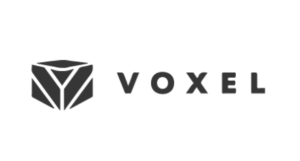
Voxel: With a team of dedicated engineers, Voxel employs its software internally to enhance performance in advanced engineering products. Brands in manufacturing or consumer packaged goods (CPG) industries can benefit from Voxel’s expertise in optimizing product performance, gaining a competitive edge.

TeamCentral: By combining a low/no-code integration platform with a data quality management solution, TeamCentral helps brands maintain data consistency and quality across multiple systems. In an AI-dominated world, this becomes increasingly important for effective brand management.

Pieces is redefining the intersection of AI and the creative process for developers and designers. Their AI-powered “generate, curate, save” loop allows for a seamless collaboration between human and machine, where the AI generates ideas and the human team curates and refines them.
To adapt to this changing landscape, companies can invest in AI training for their teams, collaborate with AI-driven agencies, or leverage AI-powered tools. AI can support various aspects such as data analysis, market research, content creation, and personalized advertising. However, it is crucial for companies to prioritize transparency, data privacy, and human oversight in their AI initiatives to foster trust with customers.
Compliance and managing perceptions are crucial as regulatory organizations catch up with the evolving landscape of AI applications in content creation, targeting, and consumer insights. Developing an enterprise brand safety strategy, integrating legal and privacy experts into product development, and forming internal cross-functional task forces can help companies navigate these challenges successfully.
AI Venture Building Space: A Broad Landscape of Possibilities
AI technology is rapidly reshaping industries, and the AI venture-building space is vast and filled with opportunities. Startups worldwide are leveraging AI’s capabilities to devise innovative solutions for brand building, customer engagement, and relationship building.
Within this space, there are numerous challenges and opportunities where startups can make an impact:
- Transparency and Accountability: Startups can assist brands in ensuring transparency and accountability in AI-driven marketing practices. This involves disclosing the use of AI algorithms, providing explanations for automated decisions, and establishing accountability frameworks for AI mistakes or issues.
- Data Privacy and Consent: Startups can help brands prioritize data privacy by developing secure data handling practices, complying with data protection regulations, and enabling clear and informed consent mechanisms for consumers.
- Bias Mitigation and Fairness: Startups can aid brands in addressing and mitigating biases in AI algorithms to ensure fair and equitable treatment of diverse consumer groups. They can contribute to diverse training datasets, conduct bias checks, and involve stakeholders in evaluating AI fairness.
- Human Oversight and Decision-Making: Startups can support brands in maintaining human oversight in AI systems. They can develop “human-in-the-loop” approaches where critical decisions are reviewed by humans, ensuring that AI-driven outcomes are accurate, unbiased, and aligned with brand values.
- Impact on Employment and Society: Startups can assist brands in mitigating the potential impact of AI on employment by developing strategies for reskilling employees and promoting equitable AI practices. They can also help brands consider broader societal implications and work towards inclusive AI adoption.
- Algorithmic Transparency and Explainability: Startups can contribute to algorithmic transparency by developing techniques to explain how AI models make decisions in a clear and understandable manner. They can provide simplified explanations, visualizations, or technical documentation for both expert review and consumer understanding.

As one of the world’s leading brands, Tide presents a compelling real-time case study for leveraging Generative AI to add value and stay ahead in the competitive market. Currently, Generative AI engines are outpacing the Tide website by providing detailed, easily accessible answers to customer queries.
To catch up and exceed this standard, Tide should consider incorporating supplemental knowledge and brand information through Generative AI.
Generative AI has the potential to enhance Tide’s brand by providing a comprehensive and interactive customer support experience. This new service could offer personalized cleaning advice, act as an empathetic concierge around sustainability and purchasing decisions, and provide insights into product benefits.
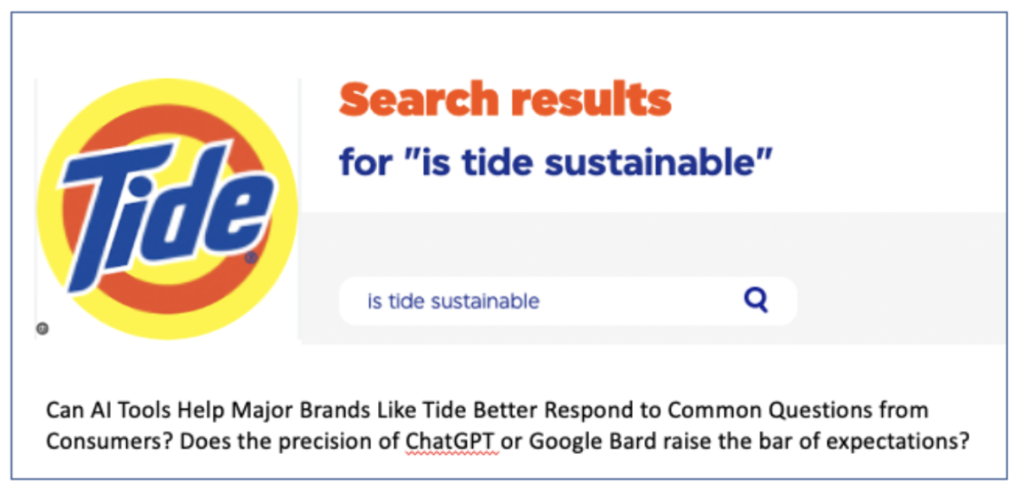

Maddie Bell, CEO and Co-Founder of Scheduler AI, shares her expertise in brand building, drawing from her experience at Procter & Gamble (P&G). Co-founded with her husband Mike Bell, Scheduler AI aims to revolutionize scheduling processes using AI technology.
Maddie emphasizes the power of deep human insight and understanding consumer needs, which she learned during her time at P&G. This understanding sets the stage for recognizing big ideas worth pursuing. She believes that the fundamentals of brand building transcend industries, enabling startups to transform and build toward success.
Scheduler AI’s AI assistant simplifies scheduling for teams, helping them secure high-value meetings and allocate more time to revenue-generating activities. By leveraging AI, Scheduler AI reduces time spent on scheduling, allowing businesses to focus on delivering revenue.
Maddie’s insights highlight the importance of consumer benefit and problem-solving in brand building. Startups like Scheduler AI exemplify how AI technology can drive innovation and provide tangible value to customers in an AI-driven world.

Cincinnati-based startup Pieces is reshaping the landscape of digital supply chain workflows with its unique productivity platform. Spearheaded by 24-year-old CEO Tsavo Knott, Pieces facilitates the easy storage, sharing, and reuse of various components, from code snippets to design layers.
“Our platform offers a unique environment where atomic components can be saved, searched, shared, referenced, and reused, driving efficiency in the digital creation process,” Knott explains. The platform’s integration of AI isn’t merely a feature but the heart of the system, learning from user input to anticipate project requirements and suggest collaborators. “Our AI copilot doesn’t just help you figure out ‘how to do something’ – it also tells you ‘who’ could be the best person to help you progress with your task.”
This aspect of the platform has been fully realized in its partnership with Microsoft Teams, where it acts as a smart assistant to manage workflows, generate codes, and recommend team members for problem-solving.
As Knott emphasizes, “Pieces.app isn’t just a tool; it’s a new way of working and creating together.” The startup has received $8 million in funding to date.




